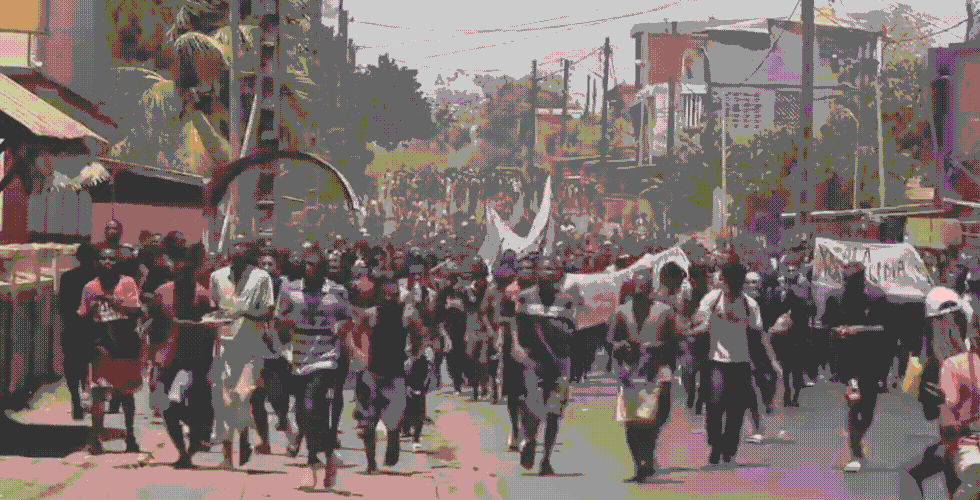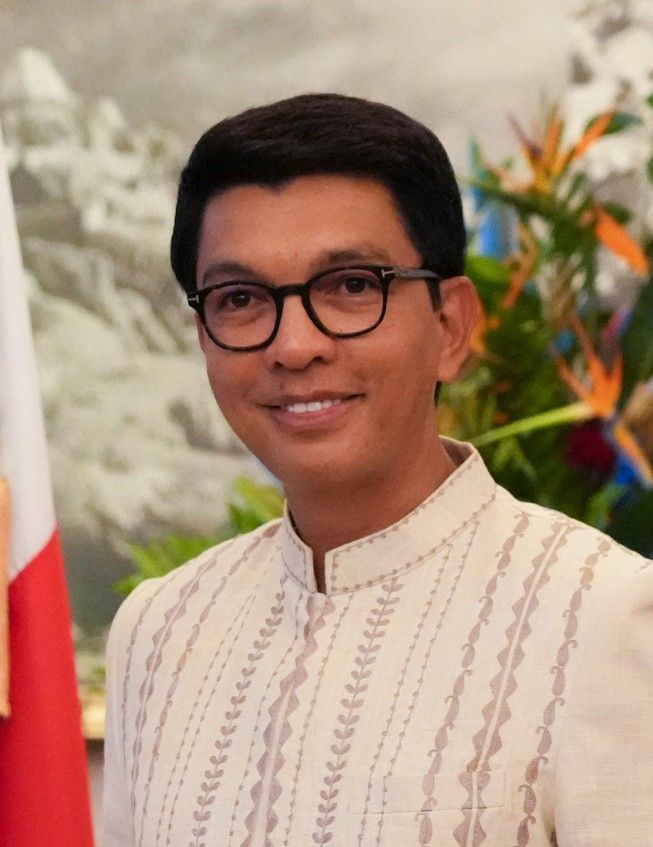In Madagascar, call centre activity partly spared by protesters

The Madagascan rioters did not vandalise or compromise the activities of the largest call centres in Antananarivo. Will AI take care of it, quietly?
Amazon, SFR, Meetic, Editis, Canal+, Carrefour Customer Service, Loopsider, etc. outsource a large part of their customer service, subscriptions and reservations to the island of Madagascar. Or their data labelling and annotation services. Many AI systems are trained by human agents before becoming operational. The latter have been less impacted or looted than shops, following the social movements triggered by Madagascar's Gen Z. When you sell contracts for energy suppliers, you want to one day have electricity and running water in your own home.
The biggest players in BPO and call centres have been operating in Madagascar for 20 years and provide a livelihood for more than 25,000 agents and their families, perhaps more*. TP, Konecta, Concentrix, etc. have taken over from Vivetic, ADM Value, Outsourcia, and Nosycom, the pioneers in the field.

But Madagascar's Gen Z recently targeted the President of the Republic, organising demonstrations under the banner Miala Rajoelina: ‘Rajoelina, get out’: high energy and water prices, shortages in this area and corruption are the main grievances of the demonstrators, whom the government has angered by banning demonstrations. The protests are continuing and more than 22 deaths have already been reported.
Large call centres working for companies such as Meetic, Editis, Carrefour and e-commerce players have sometimes been targeted by demonstrators; according to our information, the premises of two service providers have been vandalised. Consultation between the major BPO players has so far made it possible to avoid the worst, but production has had to be scaled back and teleworking introduced.
‘Thanks to the introduction of badges, our employees, like those of other call centres, can pass through the police roadblocks in the morning. And we have obtained the necessary authorisations to return later than the curfew deadline, from 8 p.m. to 4 a.m. Madagascan time,’ explains Pierre-Luc Neveu, CEO of Médiphone, currently on site.
Given the size of the BPO market on the island, the risk was managed but reignited the need to take into account the country and political risk of an industry that is almost vital. It also echoes the protests that have multiplied in Nepal and Morocco, led in the latter country by Moroccan Gen Z, who are angry in particular about the deaths of pregnant women. Access to healthcare in Morocco depends largely on financial means, according to various sources who live and work there.
From SFR to Editis, Doctolib to Paris Match, Mada!
For several weeks now, Paris Match has been suffering from poor delivery service in my neighbourhood. So, for the fourth time in a month, I called the customer service department of the Lagardère subsidiary, which was acquired by an entity of the LVMH group. I was answered by a call centre agent employed by a major BPO player. She was pleasant and followed the script, telling me that she would launch an investigation. With no news of the outcome, I called the publisher's bot for help. In both cases, Mada was told that my request would be dealt with.
A large number of publishers, energy suppliers and e-retailers have part of their French-speaking customer service teams based in two or three cities in Madagascar, either in internal centres or centres managed by specialist service providers, known as BPOs.
Although it started later than North Africa, the large island has become a very important hub: although no precise statistics exist, our magazine estimates that more than 23,500 employees work in large customer service centres. Of the top eight global service providers, five are based there.
Armatis, a mid-market player that was not present there, is building an industrial hub, which is said to be magnificent.
Ocean Call, a mid-market player, employs more than 450 people to manage appointments for doctors, solicitors and telephone hotlines. Many small and medium-sized telephone hotline companies outsource part of their calls to it. Nosycom, one of its competitors in the telephone hotline sector, is also present there.

‘Rajoelina, get out!’
France Info summarised the details and chronology of these riots as follows:
"The Indian Ocean island, which remains one of the poorest countries in the world, has regularly experienced popular uprisings against the ruling powers since its independence in 1960. In 2009, these riots led to the departure of former president Marc Ravalomanana. Since last Thursday, thousands of protesters, mobilised via social media through a movement called ‘Gen Z’, have decided to demonstrate, their demands now going beyond their frustration with constant water and electricity cuts.
The demonstrators, who set off from the University of Antananarivo, chanted slogans calling for President Andry Rajoelina to resign.
‘Rajoelina, get out!’
The former mayor of Antananarivo, Andry Rajoelina, 51, first came to power in 2009 and remained there until 2013, following a coup d'état that was triggered by a popular uprising. He was then re-elected in 2018 and again in 2023 in a contested election. The president attempted to calm the situation by dismissing his energy minister on Friday and personally visited a working-class neighbourhood of Antananarivo on Sunday, upon his return from the UN General Assembly in New York, to promise residents that he would ‘fix everything, to be even closer’ to the Malagasy people.
No moderation, decent wages
Call centre activity is not the only activity carried out in Madagascar's large BPO hubs. Moderation, photo cropping and product sheet creation services have been carried out there since the early 2000s. Vivetic, Adm Value and Outsourcia were pioneers in this field. AI training has also become an intensive activity.
These companies are mainly owned by French firms, with a few exceptions: Telesourcia, headed by Haingo Rasolofonga and Reza Amilary, is one of the few players in the sector with Madagascan capital.
‘Agents at large call centres in Madagascar tend to be better paid and enjoy good working conditions, which probably explains why the protesters did not target them. However, we have decided to have them work from home or part-time,’ says the production manager of French service provider OceanCall.

In five years, call centres in Madagascar will have disappeared
Although the riots seem to have spared BPO companies at this stage, some local entrepreneurs and employees are concerned about a more insidious and irresistible danger: the decline in activity and the replacement already being brought about by AI and chatbots. On one of the most widely read and followed forums on Facebook, 24H Mada, the following comment was posted a few weeks ago by Haja Rajaonar:
Within five years, call centres will have disappeared — and Madagascar is not ready. It will be a silent, methodical, algorithmic, inevitable disappearance. Yet we continue to praise call centres. They are presented as an efficient model: no pollution, no factories, no extraction. Just well-trained, French-speaking human voices remotely managing the frustrations of Western consumers. But these customers no longer wait. They talk to AI. They click before they even call. And when they do talk, it's to a chatbot. Not to Lova, not to Tojo, not to an operator in Tana. They are talking to a model trained to handle their request, without error, without pause, without salary.
Large companies have made their decision. It is not an ideological debate. It is a cost equation. Why continue to outsource to a distant country when an API can do the same job for a hundredth of the price, with greater consistency, without training and without staff turnover? The work is not going elsewhere: it is becoming dematerialised. It is moving to the cloud.
Meanwhile, we are still training young people to read scripts. We continue to believe that mastery of the English language is enough. We are avoiding the only question that matters: what next?
Because everything has already been written. First, the stagnation of contracts. Then, the first suspensions. Then the gradual closure of call centres. Young people will find themselves out on the street, with a bachelor's degree in telephone communication, in a world that no longer uses telephones.

But all is not lost. There is an alternative. It requires us to stop thinking like subcontractors and start thinking like builders. To provide massive training in digital skills. To focus on AI, not as a threat, but as a tool. To create local agencies for moderation, data labelling and prompt engineering. To produce code. To design products. Export intelligence, not just voice. Madagascan entrepreneurs have a decisive choice to make here: stay in a dying sector or position themselves in one that is emerging. Growth will no longer come from volume, but from value. And that value will no longer come from the number of call centre operators, but from the ability to understand, integrate and offer digital solutions (..)
Source: 24H Mada.
Like many other countries, including its neighbour Mauritius, Madagascar has ridden the wave of offshore outsourcing. It is destined for revolution.
At Concentrix, TP, Accenture, these giants of BPO and moderation, and at smaller but well-established players (such as Outsourcia and Tessi), we must continue to respond, in French, English and German, to requests from customers and major clients in telecoms, media, e-commerce and energy. And we must not miss the boat when it comes to AI agents. These are the same customers to whom we also offer AI agents. It is a complex, paradoxical position, which finds its crystallisation point in Mada.
Manuel Jacquinet.
*The figure is likely to reach 35,000 employees, as no serious study has been updated in three years. As we have written, even the work of some researchers suffers from having been carried out on rather small statistical samples. The pretext of anonymised data allows for many extrapolations.



